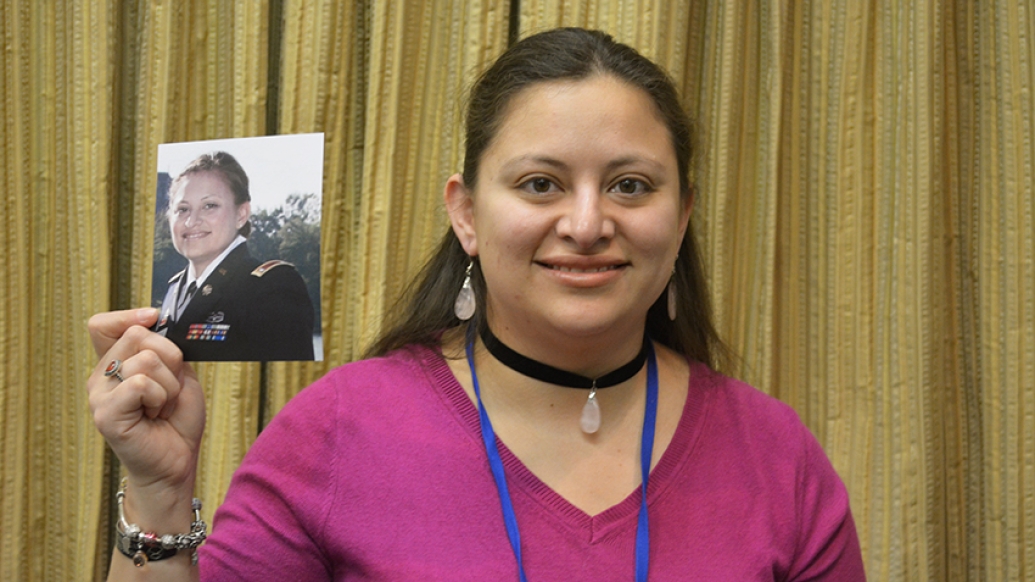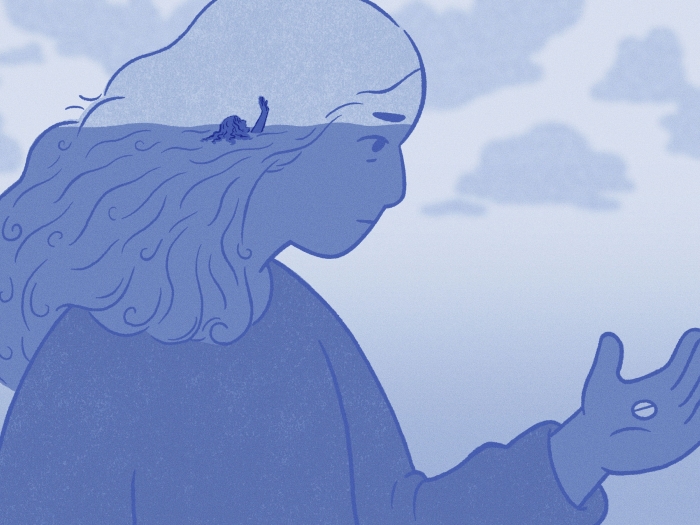After Her Service is a national program that focuses on improving women’s mental health and professional success after they leave the military.
7:00 AM
Author |

For many women, adjusting to life as a civilian after serving in the military is a battle in and of itself. The return home is often difficult for many women veterans, some of whom no longer feel sure of their place in society.
"A lot of women struggle with the transition to civilian life since they were trained to blend in and not stand out during their service, but when they come home, many [non service members] may not understand what it's like to serve, and their male counterparts may not fully recognize them as service members," says Michelle Kees, Ph.D., a clinical psychologist and associate professor in the Department of Child and Adolescent Psychiatry at the University of Michigan.
To help, the U-M Depression Center's Military Support Programs and Networks (M-SPAN) in 2017 created After Her Service, a national pilot program that serves post-9/11 women veterans, addressing both mental health and professional success. Kees is the program's primary principal investigator.
LISTEN UP: Add the new Michigan Medicine News Break to your Alexa-enabled device, or subscribe to our daily audio updates on iTunes, Google Play and Stitcher.
After Her Service provides women who have been out of service for at least six months the opportunity to attend a resilience training retreat and receive individual coaching sessions twice a month for six months.
The power of peers
The program also focuses on establishing a strong community and online peer support among women veterans.
"The power of peers and peer support reduces isolation and helps connect women veterans while providing them the same opportunity for success," Kees says.
Participants are invited to join a closed social media group, where they can share experiences and connect with other women veterans online.
This is something that could've helped me when I was stumbling and trying to figure out how to move forward in life.Jennifer Lamb
Jennifer Lamb, After Her Service's lead trainer, says she wishes the program existed in 2002, when she left the Marine Corps after nine years.
"This is something that could've helped me when I was stumbling and trying to figure out how to move forward in life," Lamb says. "We want to help [our women veterans] reduce internal issues like stress, anxiety, depression and feelings like lack of belonging. If we can make women veterans more resilient, that's success for us.
"If they can also achieve their professional goals, that's success for us."
MORE FROM MICHIGAN: Sign up for our weekly newsletter
The program takes a novel approach to veteran assistance, adopting a two-pronged system of teaching mental health resilience and helping with professional services.
"Mental health has a huge impact on one's job, and one's job can really impact [one's] mental health," Kees says.
Army veteran Clarizza Paz credits the program not only with helping her launch her own business but also for building the tools she needed to better manage stress. Paz, who spent seven years as an Army officer, she sells apparel and accessories geared toward women veterans.
Exceptional results
After Her Service is funded by a grant from the Bristol-Myers Squibb Foundation. Other partners include The Mission Continues and Stand Beside Them.
M-SPAN wants to secure additional funding and offer the service to more women veterans.
SEE ALSO: Post-Traumatic Stress Disorder: How to Get Help (or Help Someone Else)
Kees says the program's initial results have been exceptional.
"It's magic, and the gratitude of these women is amazing," she says. "They are so ready for this, and some have said they are taking chances where they never would have before. I genuinely believe this program is changing lives.
"I am incredibly honored to be able to do this and be on this journey with these exceptional women."

Explore a variety of healthcare news & stories by visiting the Health Lab home page for more articles.

Department of Communication at Michigan Medicine
Want top health & research news weekly? Sign up for Health Lab’s newsletters today!





